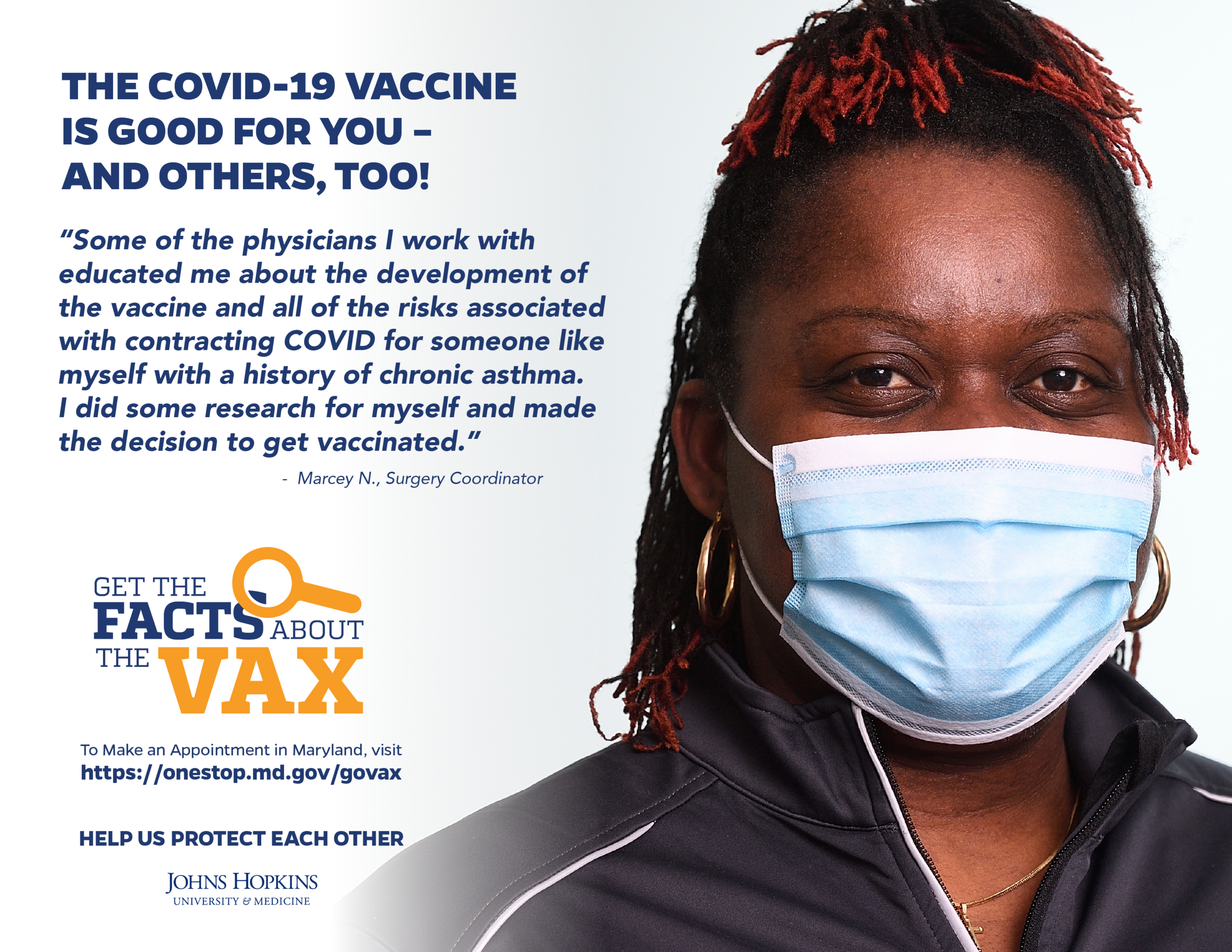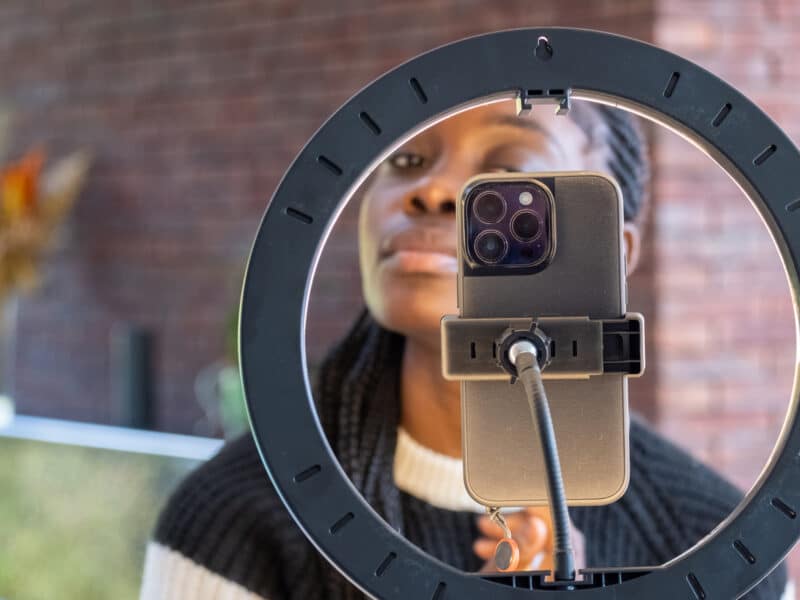The Johns Hopkins Center for Communication Programs has designed and launched a website for the Johns Hopkins community – and beyond – to provide research-driven, up-to-date information on COVID-19 to help people make informed decisions about getting vaccinated.
It’s part of the JHNeedsU campaign that has educated the university community on best practices for preventing the spread of COVID-19, including handwashing, physical distancing, and mask wearing since early in the pandemic.
The Get the Facts About the Vax website answers frequently asked questions about the vaccines – some of which are now available to people as young as 12 – and features testimonials from people from around Baltimore telling stories about why they got vaccinated.
“The doctor said to me: You need to get the vaccine! So I listened to her – now I am very glad to be vaccinated,” reads one testimonial on the website, this one from Yumi Ha, a courier.
“In addition to being essential for myself and my family, I feel taking the vaccine is a community service – one way of helping us eradicate the virus,” reads another, this one from Bertram LaRose.
The hope is not only to get Johns Hopkins affiliates and community members to use the Get the Facts About the Vax resources, but to have them share the information with co-workers, friends and family members.
“We all have parents. We all have children, brothers, sisters,” says Susan Krenn, executive director of CCP, which developed the campaign. “There’s a lot of information that’s going around. Some of it’s true, and some of it’s not. There’s still uncertainty among many about the vaccine, but the fact is that the vaccines are an incredibly important and effective tool in this fight against COVID-19.
“Hopkins is world-renowned in this area, and we owe it to our own community to ensure that they have access to information in a way that’s easy for them to digest and share.”
Among the questions that come up over and over, Krenn says, are concerns about how quickly the vaccines were developed, about mRNA vaccine technology, about the safety of the vaccines for patients with underlying conditions, and about fertility, pregnancy and breastfeeding.
“We realize that people have many of the same questions,” Krenn says. “It doesn’t matter if I’m a teacher or a facility worker or a postdoc — we want to learn more about the vaccines and how to get them.”
A version of this story appeared on the Johns Hopkins Hub.





